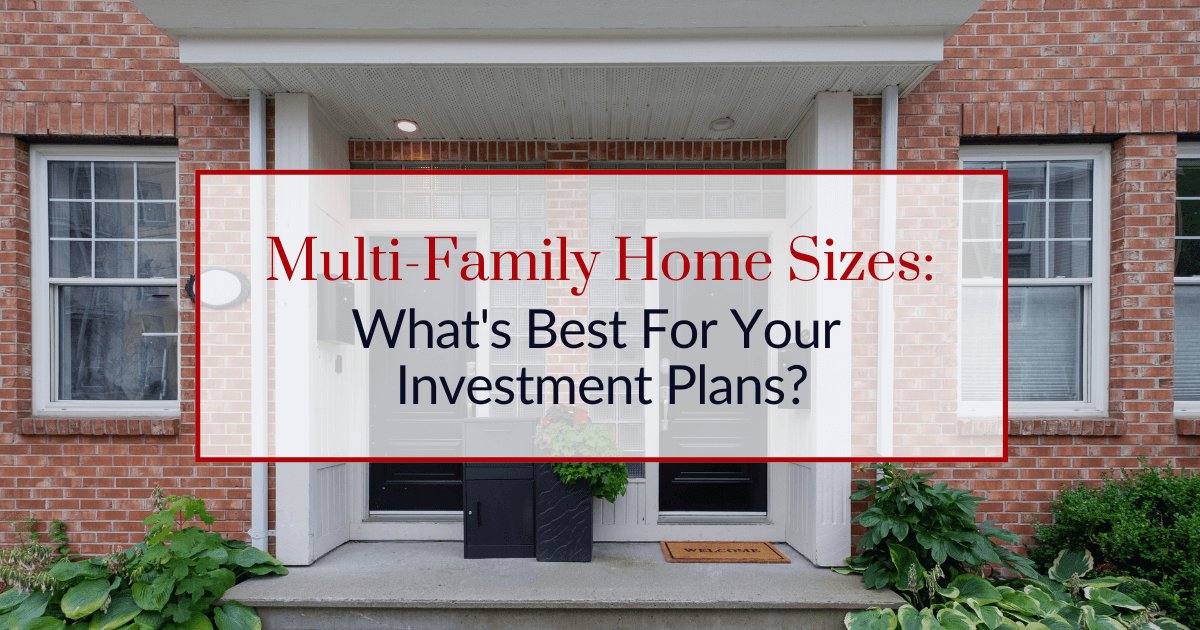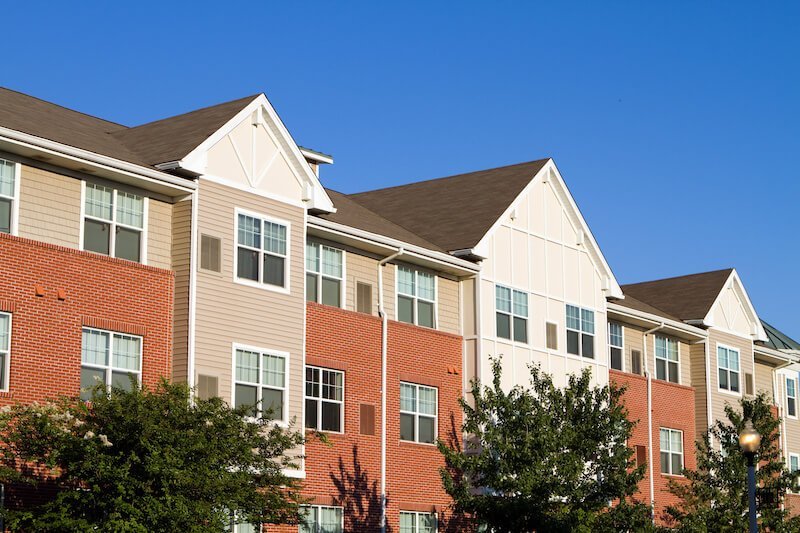
When investing in real estate, one important decision is choosing between multi-family rental sizes. Should you invest in a property with four or fewer units or consider investing in commercial housing? This article will provide valuable insights and considerations to help you make an informed decision.
Investing in multi-family homes with four units or fewer has its advantages. These properties often require less maintenance and management compared to larger commercial housing complexes. Additionally, they offer the opportunity for more personal involvement and connection with tenants.
On the other hand, commercial housing can provide higher returns and scale up your investment portfolio. However, managing commercial properties could be more complex and time-consuming.
To choose the right multi-family rental size, carefully evaluate factors such as budget, desired level of involvement, and long-term investment goals. By weighing the pros and cons of each option, investors can make a decision that aligns with their financial objectives and personal preferences.
Residential Investments: Multi-Family Homes With Four or Fewer Units
Multi-family homes with four or fewer units offer several advantages for residential investments.
- These types of homes come in various sizes and configurations, allowing investors to choose the one that best fits their needs.
- Owning and occupying a unit in a multi-family home allows investors to monitor the property and swiftly address any issues.
- Managing a smaller multi-family property is generally easier and less expensive than larger complexes, making it a more attractive option for investors.
Types of Residential Multi-Family Homes
Although there are various options available, an investor should consider the advantages and disadvantages of duplexes, triplexes, and quadplexes when deciding on the right multi-family rental size.
- Duplexes, also known as semi-detached houses, consist of two separate units. They offer the advantage of having a separate entrance and more privacy than other multi-family options.
- Triplexes, on the other hand, have three separate units. They provide more income potential compared to duplexes because of the additional rental unit.
- Quadplexes, as the name suggests, have four separate units. They offer even more income potential than triplexes. However, managing four units may require more time and effort.
Ultimately, the choice between these multi-family rental sizes depends on the investor's goals, budget, and level of involvement in property management.
Owner-Occupied Advantages
If you're looking to reduce your living expenses and pay off your mortgage faster, an owner-occupied multi-family home may be the way to go. By living in one unit and renting out the others, you can have your tenants cover a significant portion, if not all, of your monthly mortgage payment. This allows you to build equity in the property and pay down your loan at an accelerated rate.
In addition to financial benefits, owner-occupied multi-family homes offer other advantages. You can take advantage of buying a property and apply for an FHA loan, which often allows a lower down payment. Furthermore, by living on-site, you have greater control over the property and can quickly address any maintenance or tenant issues.
Overall, choosing an owner-occupied multi-family home provides a smart and strategic approach to homeownership.
Easier & Less Expensive to Manage
Managing a small multi-family property is typically a cost-effective and relatively hassle-free investment option. Multi-family homes with fewer than four units offer several advantages.
With a smaller number of units, landlords can handle maintenance, repairs, and tenant issues more efficiently. Additionally, managing a small multi-family property may require less time and effort than larger properties. Landlords can easily handle the day-to-day operations, such as rent collection and property inspections.
The cost of managing a small multi-family property is relatively low when compared to commercial housing investments. Landlords can save on expenses like property management fees and maintenance costs.
Overall, choosing a smaller multi-family rental size provides investors with an easier and more affordable way to maintain and manage their investment properties.
Considerations for Investing in Commercial Housing

When considering investing in commercial housing, one must consider the different types of commercial housing investments available, such as office buildings, retail spaces, or industrial properties.
Commercial housing investments often offer higher cash flow and property values versus residential investments. However, it's important to note that managing commercial properties can be more challenging and time-consuming due to the larger scale and complexities involved.
Types of Commercial Housing Investments
There are various commercial housing investments available to you when choosing between multi-family rental sizes.
- Apartment Buildings: One option is to invest in apartment buildings. Apartment buildings range from small complexes with just a few units to grand buildings with dozens or even hundreds of units.
- Townhouses or Condominiums: Townhouses or condominiums offer a different living arrangement for tenants. These properties typically offer multiple units within one building or complex.
- Mixed-Use Properties: Mixed-use properties combine residential units with commercial spaces such as retail stores or offices. This type of investment can provide additional income streams and diversification.
Ultimately, the choice will depend on your investment goals and preferences.
Higher Cash Flow & Property Values
Investing in commercial housing offers the potential for increased cash flow and property values, providing investors with a lucrative opportunity. Commercial housing investments tend to generate higher rental income compared to residential properties. Simply put, commercial housing investments have more units.
Multi-family rental properties, such as apartment complexes or townhouses, offer the advantage of multiple income streams from different tenants. This diversification of income sources can help mitigate risks associated with vacancies or non-payment of rent.
Commercial properties generally have longer lease terms, providing a more stable and predictable cash flow. Moreover, commercial housing investments have the potential for higher property values over time. The demand for rental properties is often driven by population growth and urbanization—leading to increased property values.
Investors can benefit from rental income and capital appreciation, making commercial housing investments an attractive option for those seeking higher returns.
Challenging to Manage
Managing larger multi-family homes can be challenging, especially if you're looking for a cost-effective solution without hiring a property management company. When it comes to managing bigger rental properties, the increased number of units and tenants provides a challenging endeavor.
With more units comes more maintenance and repairs, as well as a higher likelihood of tenant turnover. It can be time-consuming and demanding to handle all the responsibilities that come with managing multiple units, such as rent collection, lease agreements, and addressing tenant complaints.
Additionally, it can be challenging to maintain a sense of community and ensure that all tenants abide by the rules and regulations. Without the assistance of a property management company, the owner must take on these responsibilities themselves, which can be overwhelming and may require significant time and effort.
Optimize Your Investment Strategy
Investors should carefully consider their goals and resources before choosing between multi-family rental properties. While smaller multi-family homes with four or fewer units may offer a more manageable investment with less risk, larger commercial housing units provide the potential for higher returns. Base your decision on factors like budget, location, and long-term plans. By weighing these considerations, investors can make an informed choice that aligns with their investment strategy.
Nashville Multiplex Resources
- Should You Convert Your Home into a Multi-Family Home or Buy an Existing Multi-Family Home? - Coming Soon!
- Multi-Family Home Sizes: What's Best For Your Investment Plans?
- Should You Live in Your Multi-Family Rental Home? - Coming Soon!
- Search Nashville Multi-Family Homes For Sale



